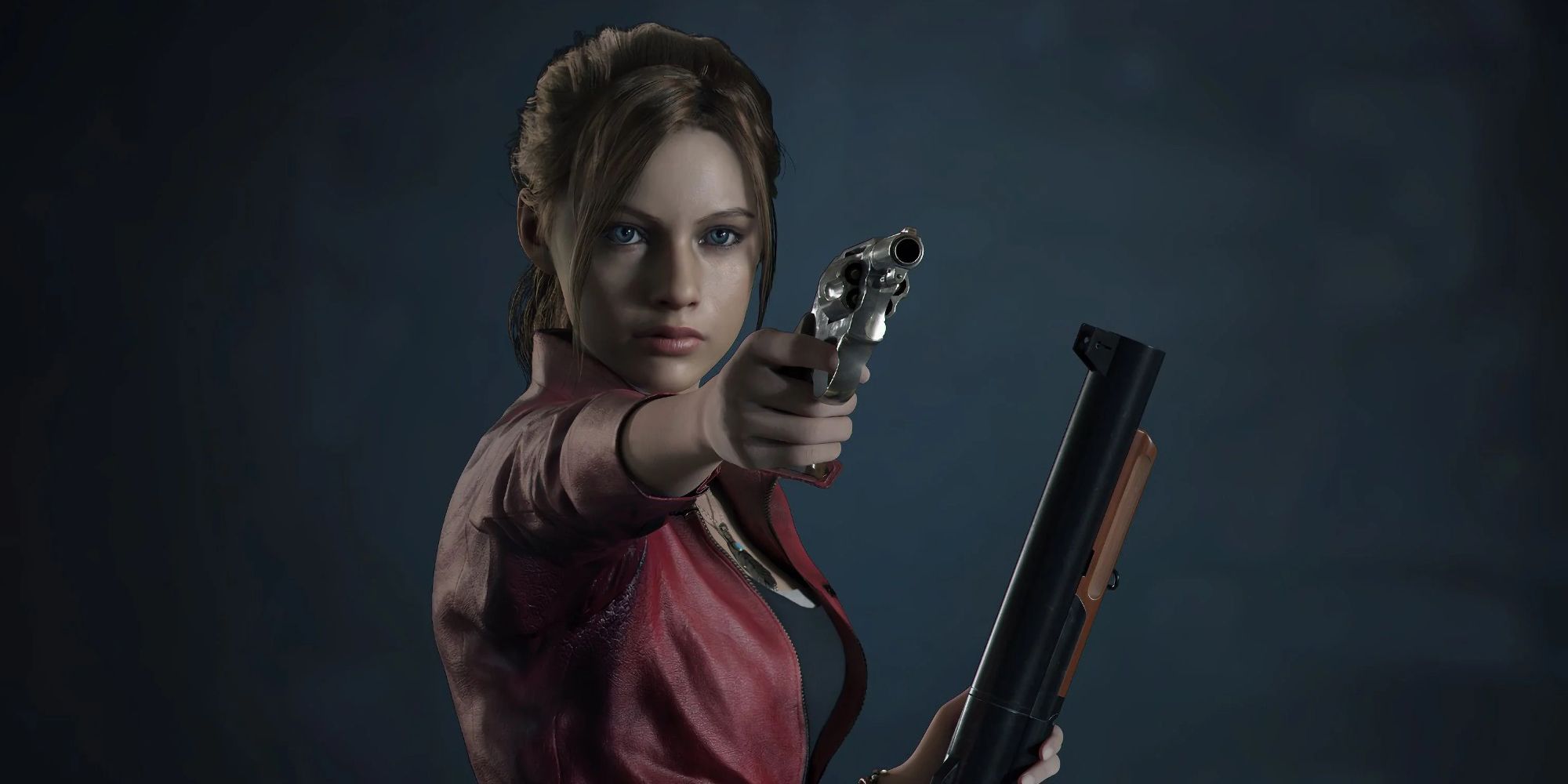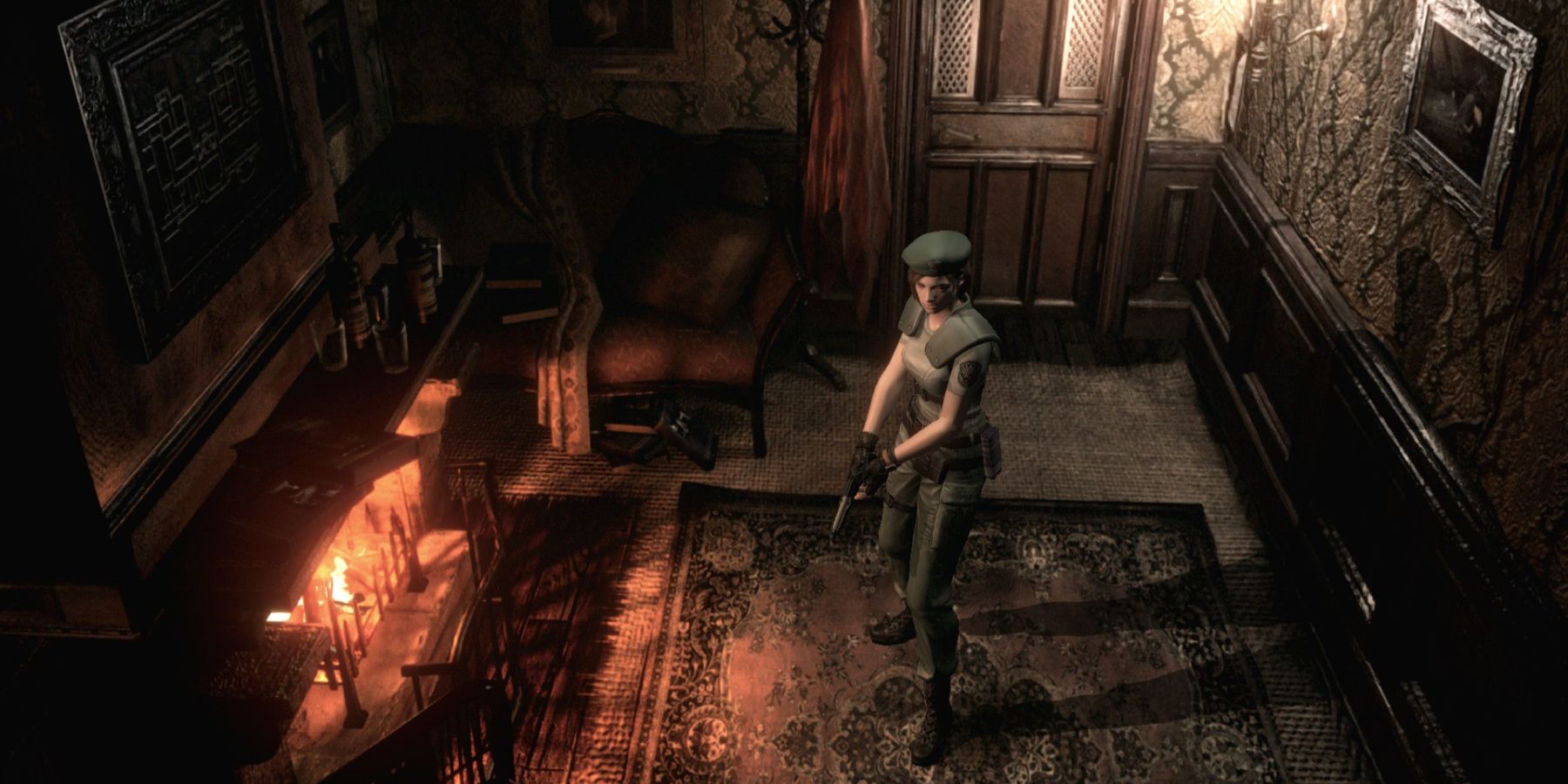Resident Evil is a survival-horror series that has many tricks and traps to revisit, but as it's developed, it's grown further and further away from a return to form that would be the games' most daring move. Resident Evil certainly isn't a stranger to risks, from the very inception of the series to the transition to an over-the-shoulder action focus in Resident Evil 4 and the first-person shift in Resident Evil 7. Most of these risks have propelled the series to massive heights and made it the Capcom powerhouse it is today, but even so, there's one risky move Capcom is unlikely to ever make - bringing back its fixed cameras.
The series started with the original Resident Evil, an all-time classic, sticking players in claustrophobic hallways, managing resources and cryptic puzzles, and fighting against biological weapons and the undead. As the series developed some things were tweaked, adjusted, and changed, but the general motif has remained similar. Some of these adjustments and changes were rather drastic such as new camera operation modes and focus on pacing, still keeping that same Resident Evil spirit for the most part, but delivering it in new ways that new technology would afford. Even through the passage of technology and time, some mechanics and quirks of older games would be reintegrated and revisited, but one has never seen the light since the 64-bit era save for a single cameo.
Returning to fixed camera angles would be the boldest move by Capcom since Resident Evil 4's important design change to an over-the-shoulder perspective back in 2005, but not one likely to pan out. The original Resident Evil games up through 3 all featured a stiff, unmoving camera that would cut to other viewpoints when entering new rooms or angles the previous couldn't cover. Resident Evil 4 broke the mold and offered a perspective that better fit the open areas and focus on intense action, but even when returning to more subdued horror roots, the series would never return to this form of operation again. Modern players expect tight controls and concise, constant information being relayed to the player, and the antiquated perspective fixed cameras offer wouldn't satisfy most palettes.
Fixed Perspective Is A Dead Resident Evil Design
The explosive success of Mr. X's return in Resident Evil 2 shows a broad player preference in a more modern camera and control scheme over the old stiff ways. Some argument can be made that fixed camera angles increase tension and potentially makes encounters more cinematic, but the consensus reflects a desire for more player autonomy. The recent news of Resident Evil 4's remake retaining its over the shoulder action camera seems to show that Capcom, and its fans, are eager to continue forays back into the third-person shooter style, but possibly not willing to tread the water of fixed camera angles once more.
Resident Evil has taken many risks and enjoyed nearly as many successes, and the entire series has more or less been about pushing the envelope of what survivor horror is and can be. But even though the third-person camera ultimately lead to the series worst game, Resident Evil 6, the risks associated with regressing to a design choice mostly made for technological limitations apparently prove too great for Capcom to risk. Even spiritual successors and indie inspirations all seem to steer clear of the retro camera work, and it's not often a requested feature to return either. Capcom's boldest potential move for Resident Evil may indeed be left undone, for the best.


